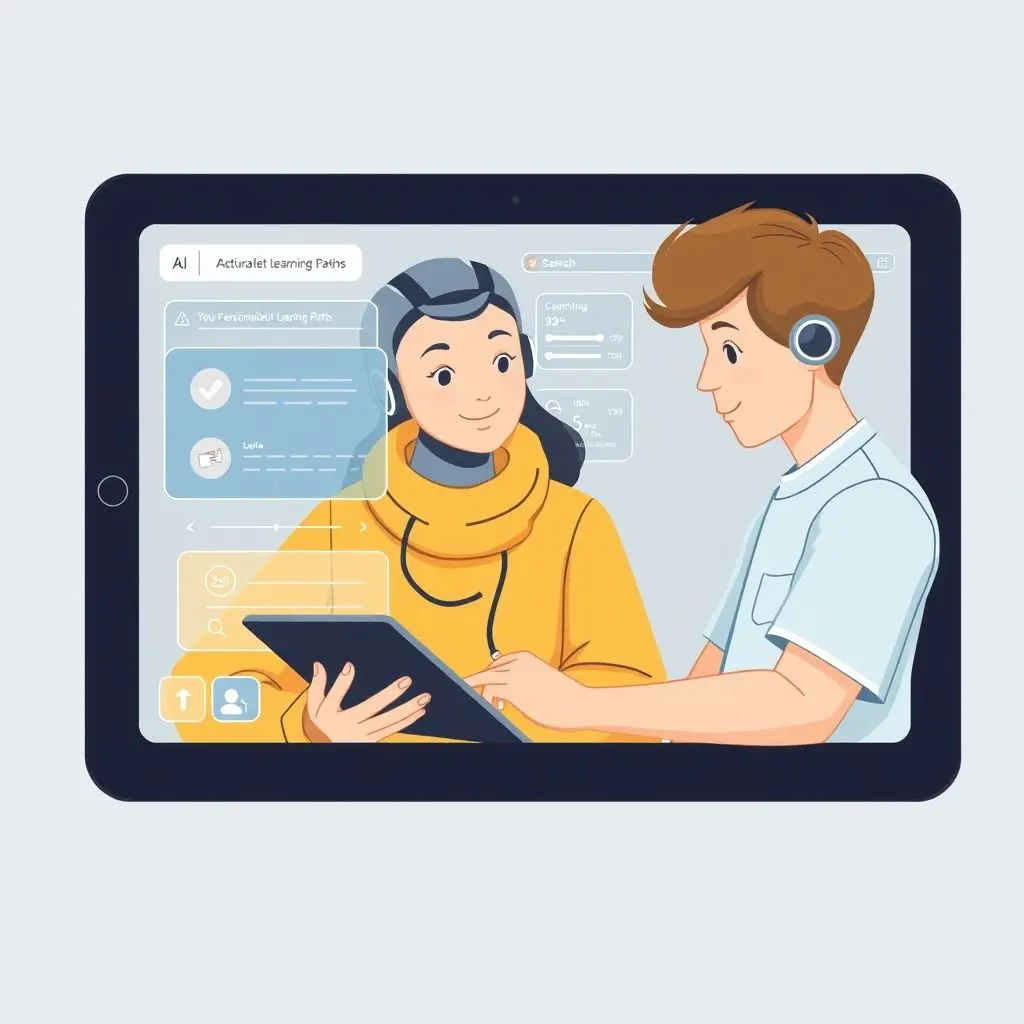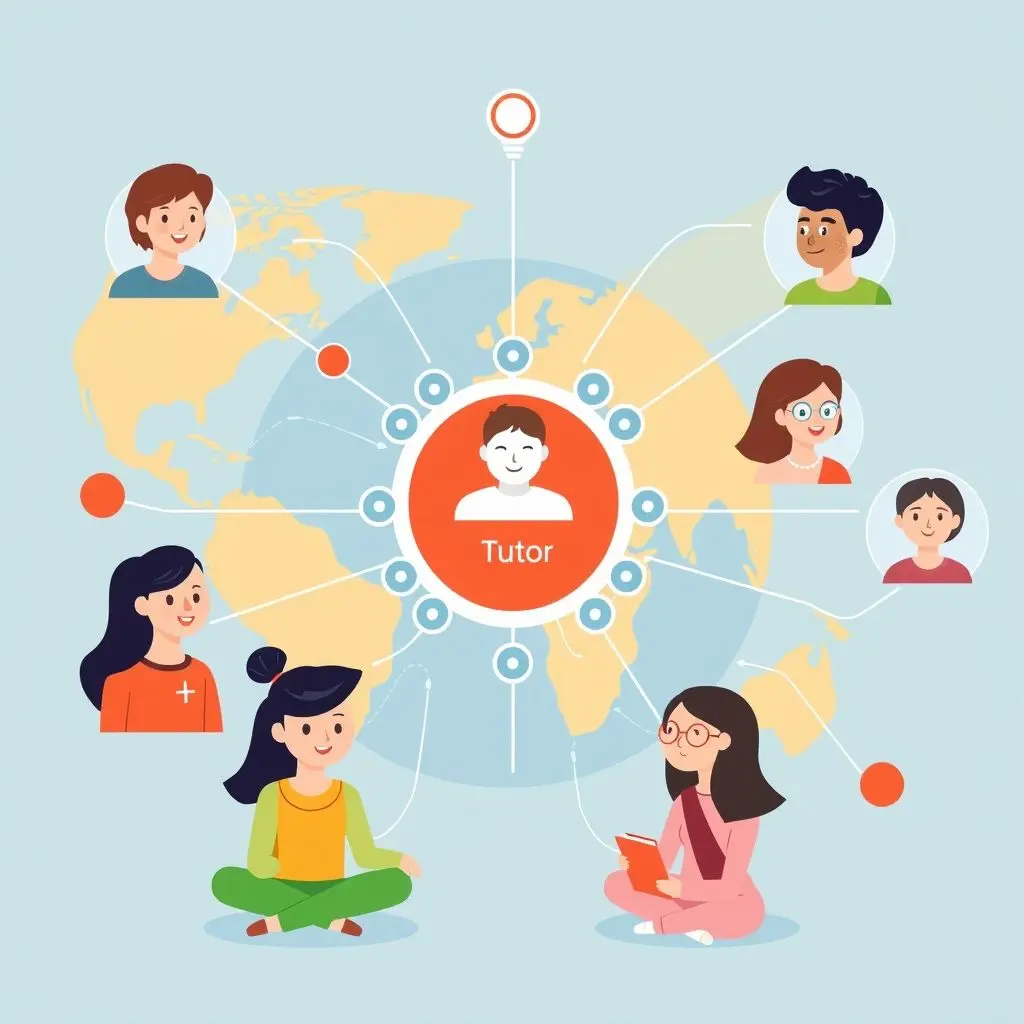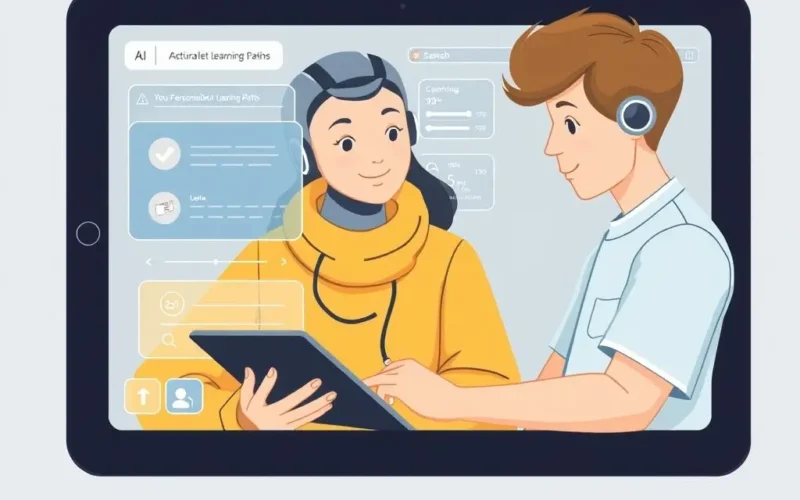Remember those moments in school? You’re sitting there, the teacher or textbook is explaining a concept, and it just… isn’t clicking. Meanwhile, it seems like everyone around you has already grasped it. That feeling of being left behind, or wishing someone could just explain it *your* way, is incredibly common.
What if learning wasn’t a one-size-fits-all experience? What if you had a guide, a tutor, available around the clock, who understood *exactly* how you process information and could adapt their teaching style on the fly?
Well, get ready, because that future is rapidly becoming our present. Say hello to Personalized AI Tutors.
Before we dive deep, here’s a quick look at what sparked this thought:
These aren’t just fancy flashcard apps or static video libraries. We’re talking about sophisticated artificial intelligence that learns your pace, your strengths, your weaknesses, and even the specific ways you respond to different types of explanations. They are poised to revolutionize how we acquire knowledge and master skills.
Table of Contents
What Exactly Are Personalized AI Tutors?
At their core, personalized AI tutors are intelligent software systems designed to provide one-on-one educational assistance tailored to an individual student’s needs. Unlike traditional tutoring or even many existing e-learning platforms, which often follow a predetermined path, AI tutors leverage machine learning and natural language processing to offer a dynamic, adaptive learning experience.
Think of them as having an infinitely patient mentor who:
- Analyzes your responses in real-time.
- Identifies where you’re struggling, not just what you got wrong.
- Offers alternative explanations, examples, and analogies if the first one doesn’t resonate.
- Adjusts the difficulty and pace of material presented.
- Provides instant feedback and targeted practice problems.
- Tracks your progress over time to build a comprehensive profile of your learning journey.
They move beyond simply delivering content; they actively engage with the learner in a conversational and diagnostic manner, aiming to foster true understanding.
How Do These Digital Mentors Actually Work?
The magic behind personalized AI tutors lies in complex algorithms and vast datasets. Here’s a simplified breakdown:
Understanding the Learner
It starts with gathering data. This includes your initial knowledge level (often through diagnostic tests), your responses to questions, the time you spend on tasks, the types of errors you make, and how you interact with the interface. Some advanced systems might even analyze sentiment in your text responses (though this raises privacy considerations).
Adaptive Learning Algorithms
Based on the collected data, machine learning algorithms build a profile of your learning style and knowledge gaps. They predict what you’re likely to struggle with next and determine the most effective way to present new information or review old concepts. If you fail to grasp a concept after one explanation, the AI doesn’t just repeat it; it tries a different angle – perhaps a visual explanation, a step-by-step breakdown, or a real-world analogy.
Natural Language Processing (NLP)
To interact conversationally, AI tutors use NLP. This allows them to understand your questions, even if they aren’t perfectly phrased, and generate human-like responses. This is crucial for providing nuanced explanations and engaging in back-and-forth dialogue that feels natural and supportive.
Content Generation and Curation
AI tutors draw from a vast library of educational content, which they can remix, rephrase, or even generate new examples from. If you’re stuck on a geometry proof, the AI can create a custom problem with steps tailored to where you got lost. If you don’t understand a historical event, it can provide a different narrative or focus on a different cause-and-effect link.

The Profound Benefits of a Personalized Approach
The potential benefits of widespread adoption of personalized AI tutors are immense and touch upon accessibility, effectiveness, and the very experience of learning.
- Unprecedented Accessibility: Available 24/7, regardless of geographical location or time zones. This breaks down significant barriers for students in remote areas, those with busy schedules, or learners with specific needs that traditional schooling struggles to accommodate. It truly pushes towards democratizing education.
- Tailored Pace: Learners can move as fast or as slow as they need to. No more feeling rushed or bored. The AI ensures mastery before moving on, solidifying foundational knowledge.
- Multiple Explanations: The AI can present concepts in various formats (text, visual, interactive) and using different analogies until that ‘aha!’ moment hits. This caters directly to diverse learning styles.
- Instant, Non-Judgmental Feedback: Students receive immediate feedback on their performance without the fear of judgment, encouraging experimentation and learning from mistakes in a safe environment.
- Increased Engagement and Confidence: By providing appropriately challenging material and celebrating small victories, AI tutors can keep learners motivated and build confidence, especially for those who have struggled in traditional settings.
- Supplementing Human Teachers: AI tutors aren’t necessarily replacements but powerful tools that can free up human educators to focus on higher-level tasks like mentorship, social-emotional learning, and complex project guidance, while the AI handles foundational drilling and personalized review.
- Affordability Potential: While initial development is costly, scaled AI tutoring could potentially offer high-quality personalized instruction at a significantly lower cost than traditional one-on-one human tutoring, making it accessible to a wider population.
Considering the Hurdles and Considerations
As with any transformative technology, personalized AI tutors come with challenges that need careful consideration and ethical frameworks.
- Data Privacy and Security: AI tutors collect sensitive data about learning habits and performance. Ensuring this data is securely stored and used ethically is paramount.
- Accuracy and Bias: AI is only as good as the data it’s trained on. There’s a risk of perpetuating biases present in the training data or providing inaccurate information if not rigorously developed and monitored.
- Lack of Human Interaction: While AI can simulate conversation, it cannot replace the empathy, mentorship, and social interaction that a human teacher or tutor provides. Education is also a social endeavor.
- Digital Divide: Access to reliable internet, suitable devices, and digital literacy are prerequisites. Implementing AI tutors widely requires addressing these infrastructure and equity issues.
- Cost of Development and Implementation: Building truly effective, personalized AI tutors is complex and expensive, potentially limiting access initially.
- Over-Reliance: There’s a risk that students might become overly reliant on the AI and miss out on developing critical thinking skills or the ability to learn independently.

What Lies Ahead for Personalized Learning?
Personalized AI tutors represent a significant step towards a more equitable and effective educational landscape. They have the potential to make high-quality, tailored learning available to anyone with an internet connection, regardless of their background or location.
The future likely involves a blend – AI tutors handling the heavy lifting of personalized content delivery, practice, and foundational explanations, while human educators provide the crucial elements of mentorship, collaborative projects, critical thinking facilitation, and social-emotional support.
Imagine a world where struggling students automatically receive the exact support they need, and advanced students are seamlessly presented with more challenging material, all guided by intelligent systems that understand and adapt to their unique journey. This isn’t just about smarter studying; it’s about unlocking the full potential of every learner.

FAQs About Personalized AI Tutors
Q: Can AI tutors replace human teachers?
A: Not entirely. While AI tutors excel at personalized content delivery, practice, and instant feedback, they lack the social interaction, emotional intelligence, mentorship, and ability to facilitate complex group activities that human teachers provide. They are best viewed as powerful tools to augment human instruction, not replace it.
Q: What subjects can AI tutors teach?
A: Currently, they are strongest in subjects with well-defined structures and large datasets, such as mathematics, science, and language fundamentals. As AI advances, their capabilities will expand to more complex and subjective areas.
Q: How is my data kept private?
A: Reputable AI tutor platforms employ strong encryption and data privacy protocols, adhering to regulations like GDPR or FERPA depending on the region and context. However, it’s crucial to research and understand the privacy policy of any specific platform you use.
Q: Are personalized AI tutors expensive?
A: Pricing varies greatly. Some platforms offer free basic versions, while more advanced or specialized tutors may require subscriptions. The hope is that widespread adoption and development will make quality AI tutoring increasingly affordable compared to traditional private tutoring.
Q: How do AI tutors adapt to different learning styles?
A: By analyzing how a student responds to different types of content (visuals vs. text, step-by-step vs. conceptual explanations), the AI can infer preferred learning styles and dynamically adjust how it presents information and interacts with the student.
The journey towards truly individualized learning for everyone just received a serious upgrade, and personalized AI tutors are leading the way.





